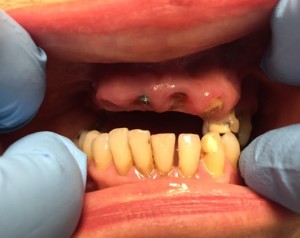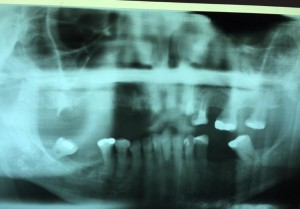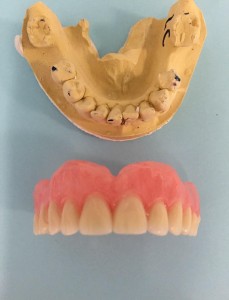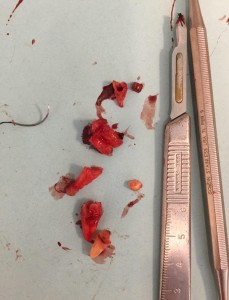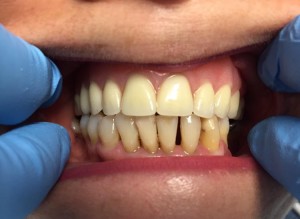For this nice lady, I extracted her broken upper teeth and made her an upper complete denture and lower left posterior partial denture and whitened her remaining lower teeth. This was a fun case and her new smile looks amazing

This patient had a heart attack and some other health issues and wasn’t taking very good care of his teeth. He came to me with tooth pain and wanted me to help. Since his remaining teeth were in poor condition, I recommended to extract his remaining teeth and make complete upper and lower dentures.
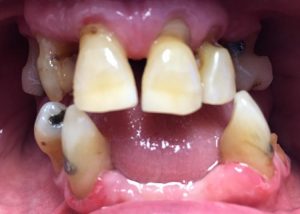
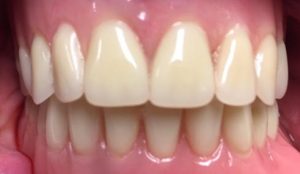

In this case today, a lady came to me as an emergency with a broken old upper denture. I was able to temporarily repair her upper denture, use it as a custom tray, take the final impression, and make her a new nice fitting brand new upper denture in just a few days. She used the old denture while we made her a new one.
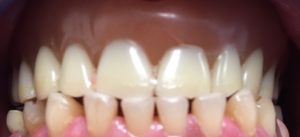
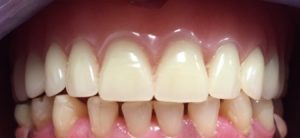
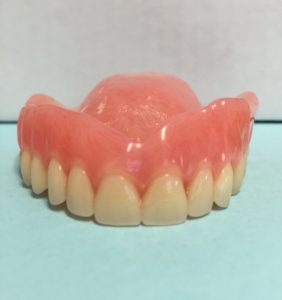
This is why I became a dentist! To help people look and feel better. When I first saw her, she would never smile because she was embarrassed and uncomfortable with the way her teeth looked. She told me she just wanted to be happy and smile again. After I finisher her treatment you can see how wonderful, confident, and happy she looks. This is why I love being a dentist and why I go to work every day!!!


Dear Dr. Gentry, Thank you very much for fixing my teeth. You are the best dentist! You have made me able to smile again, and make me feel so good with my beautiful new teeth.
Sincerely, Marcella Giovannetti
Too many people who have conventional dentures don’t wear them for the simple fact that they don’t stay in place. Dental Implants offer a way to keep dentures in place and allow you to go about your daily life with confidence.
 The use of dental implants to stabilize dentures has proven to be successful for many people. The number continues to grow as word spreads about the effectiveness and long-term durability of the treatment. In fact, it has been reported that dental implants have the highest success rate of any implanted surgical device.*
The use of dental implants to stabilize dentures has proven to be successful for many people. The number continues to grow as word spreads about the effectiveness and long-term durability of the treatment. In fact, it has been reported that dental implants have the highest success rate of any implanted surgical device.*
Millions of people around the world are missing enough teeth to require the use of a denture. Many of them struggle to keep their dentures secure, particularly in the lower jaw. If you have this problem, you already know about the embarrassment of slipping dentures, not being able to eat the foods that you love and the ineffectiveness of denture adhesives. Fortunately, there is a way to make your denture work the way it was intended: stabilize it with dental implants.
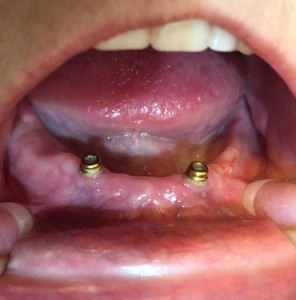
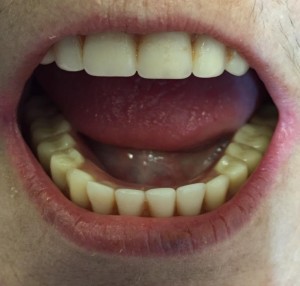
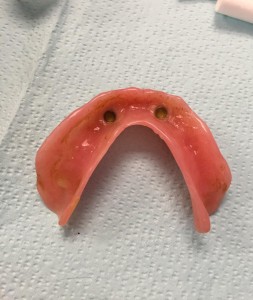
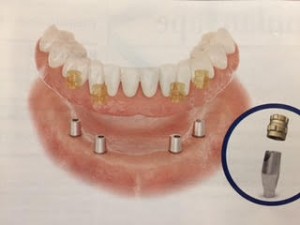
Dentures are removable appliances that can replace missing teeth and help restore your smile. If you’ve lost all of your natural teeth, whether from gum disease, tooth decay or injury, replacing missing teeth will benefit your appearance and your health. That’s because dentures make it easier to eat and speak better than you could without teeth—things that people often take for granted.
When you lose all of your teeth, facial muscles can sag, making you look older. Dentures can help fill out the appearance of your face and profile. They can be made to closely resemble your natural teeth so that your appearance does not change much. Dentures may even improve the look of your smile.
New dentures may feel awkward for a few weeks until you become accustomed to them. The dentures may feel loose while the muscles of your cheek and tongue learn to keep them in place. It is not unusual to experience minor irritation or soreness. You may find that saliva flow temporarily increases. As your mouth becomes accustomed to the dentures, these problems should go away. Follow-up appointments are generally needed after a denture is inserted so the fit can be checked and adjusted.
Even if you wear full dentures, you still have to practice good dental hygiene. Brush your gums, tongue and roof of your mouth every morning with a soft-bristled brush before you insert your dentures to stimulate circulation in your tissues and help remove plaque.
Dr. Gentry’s photos of one of his immediate complete upper denture cases.
